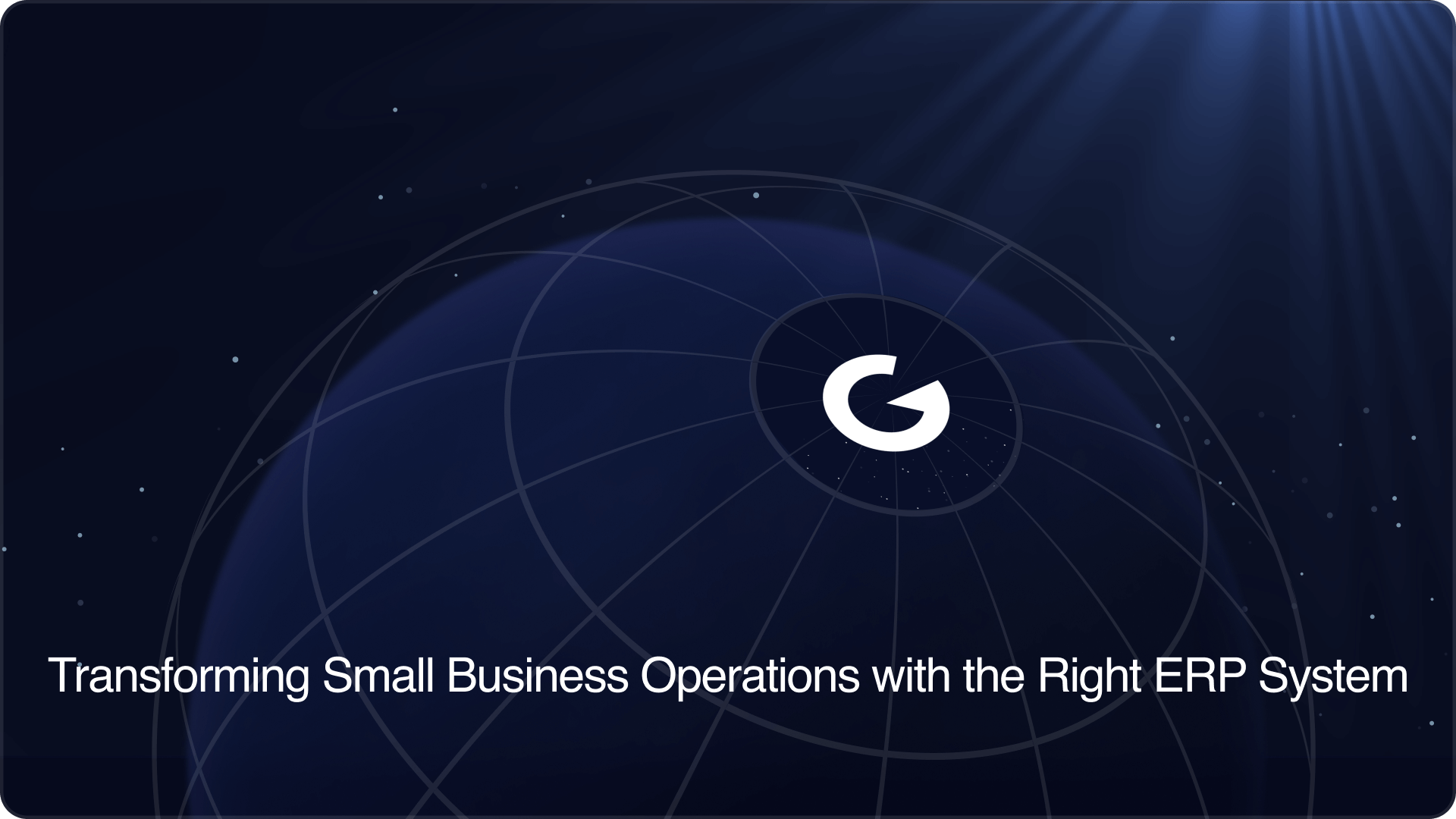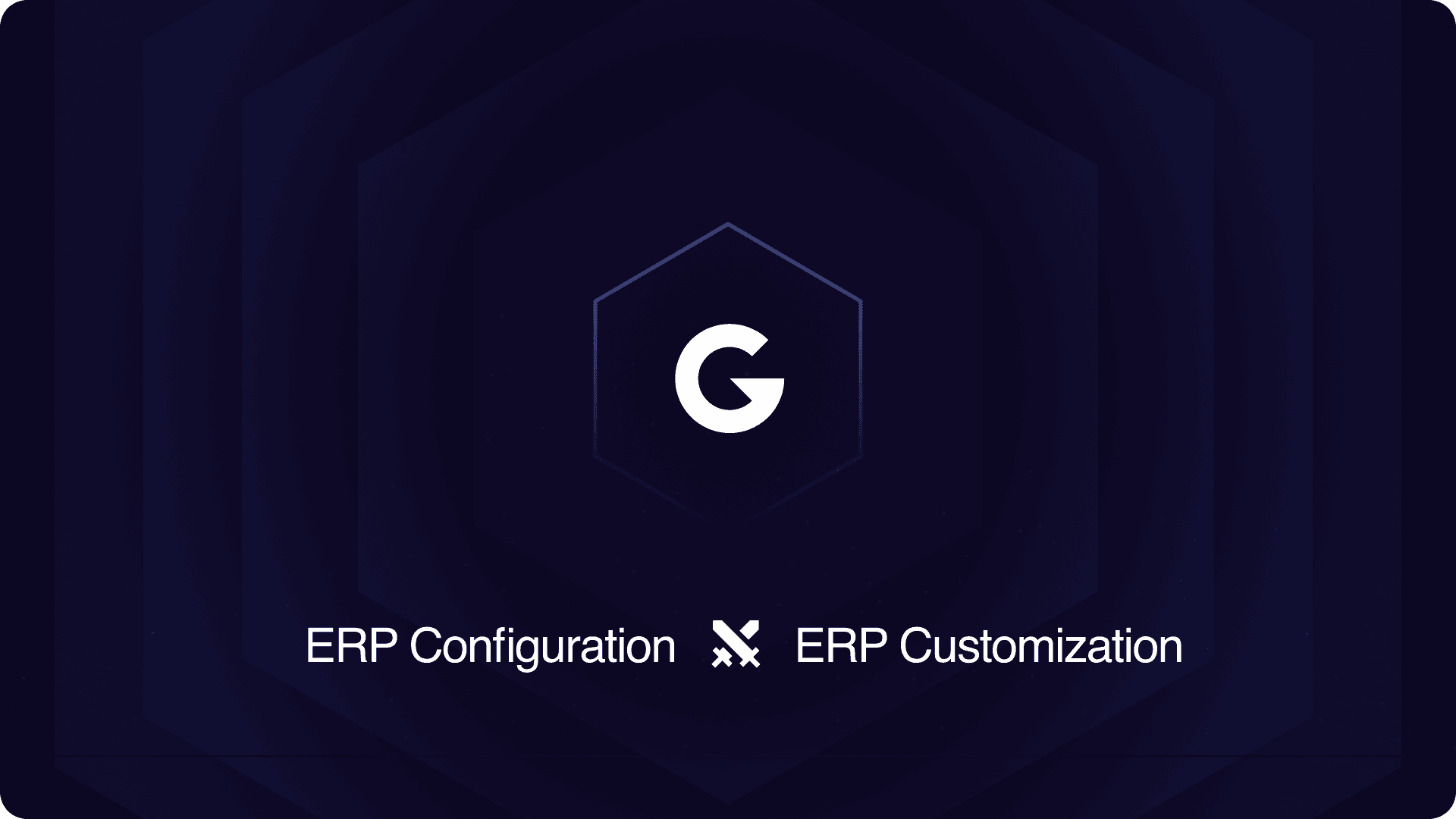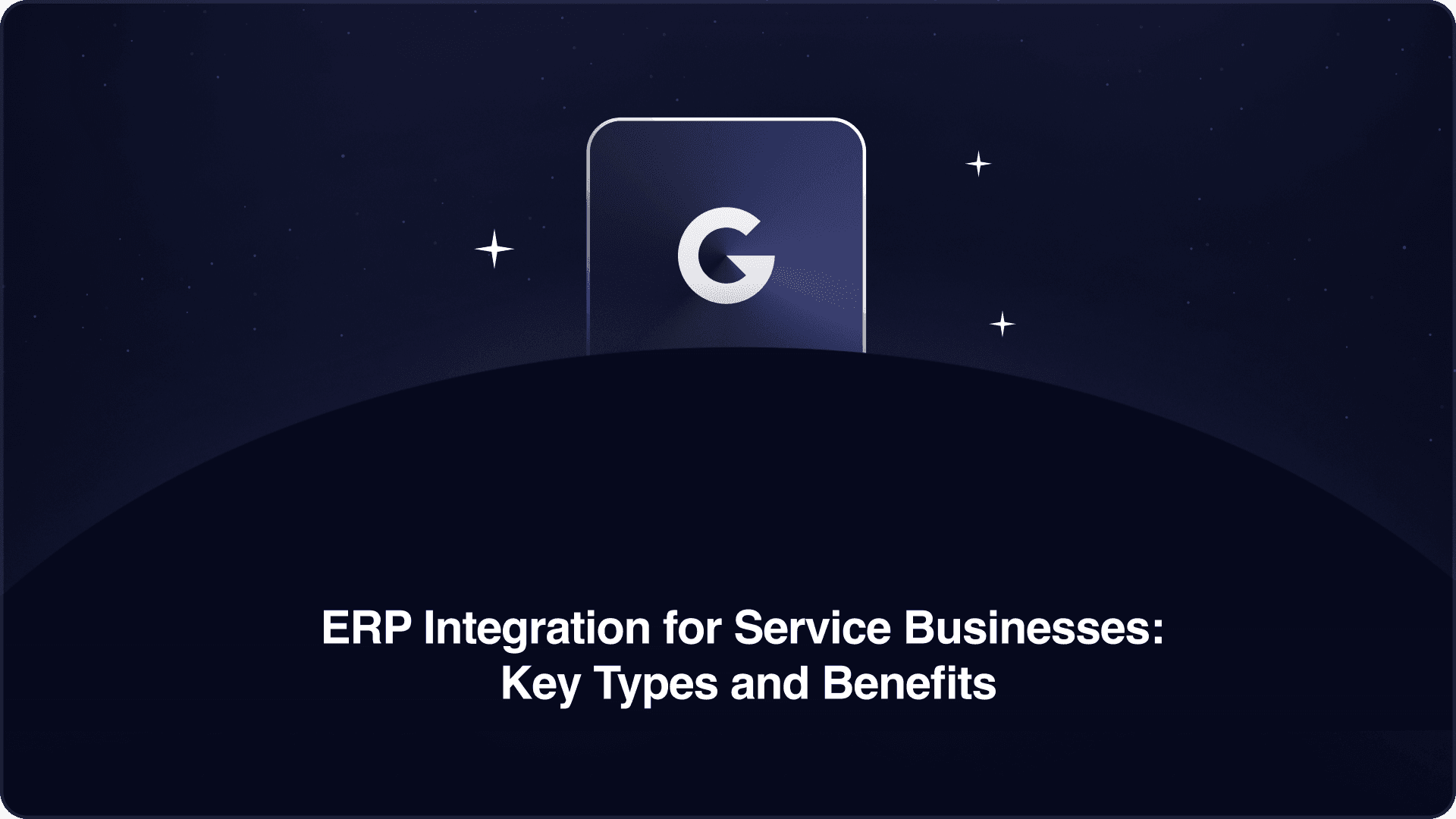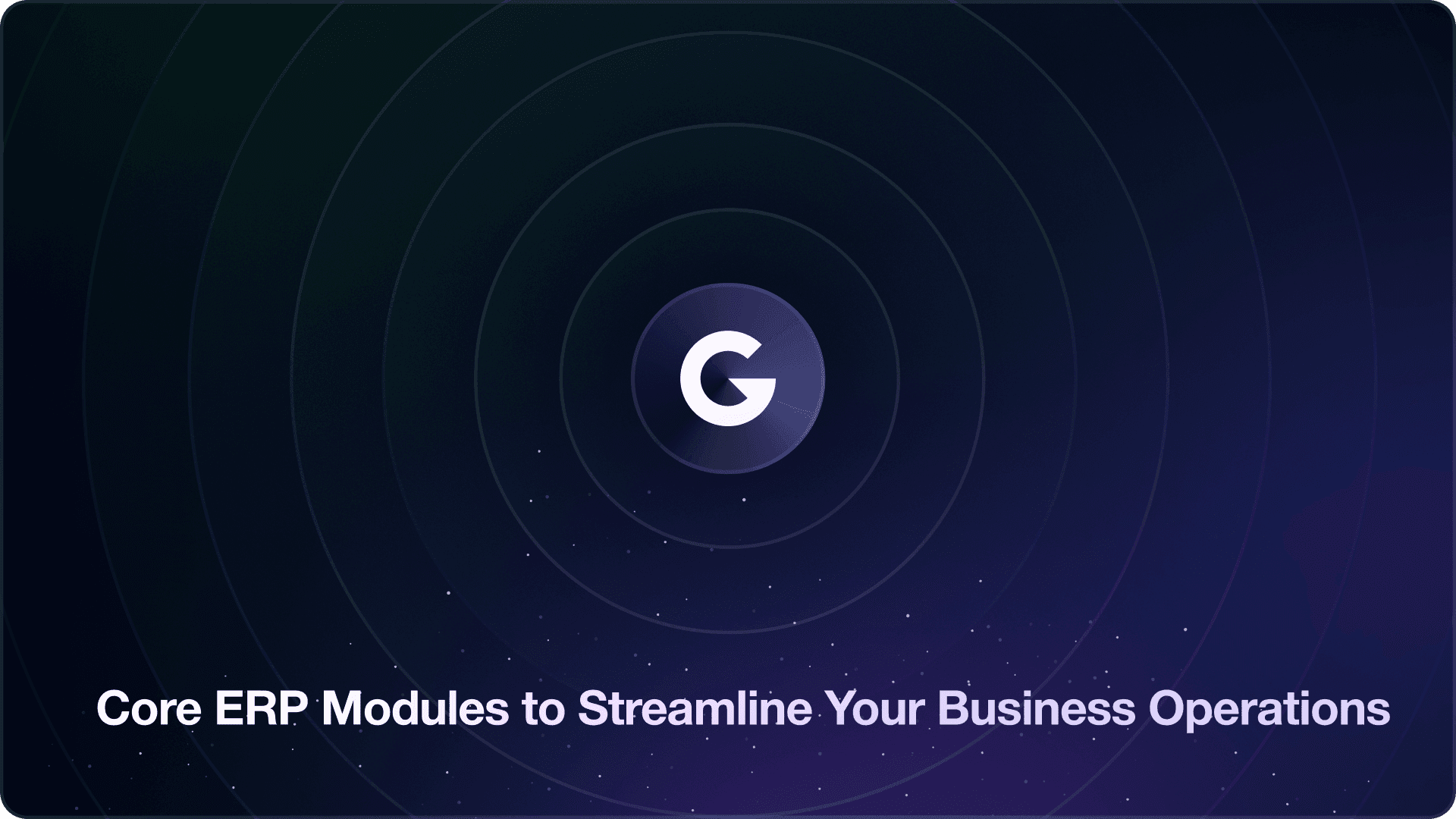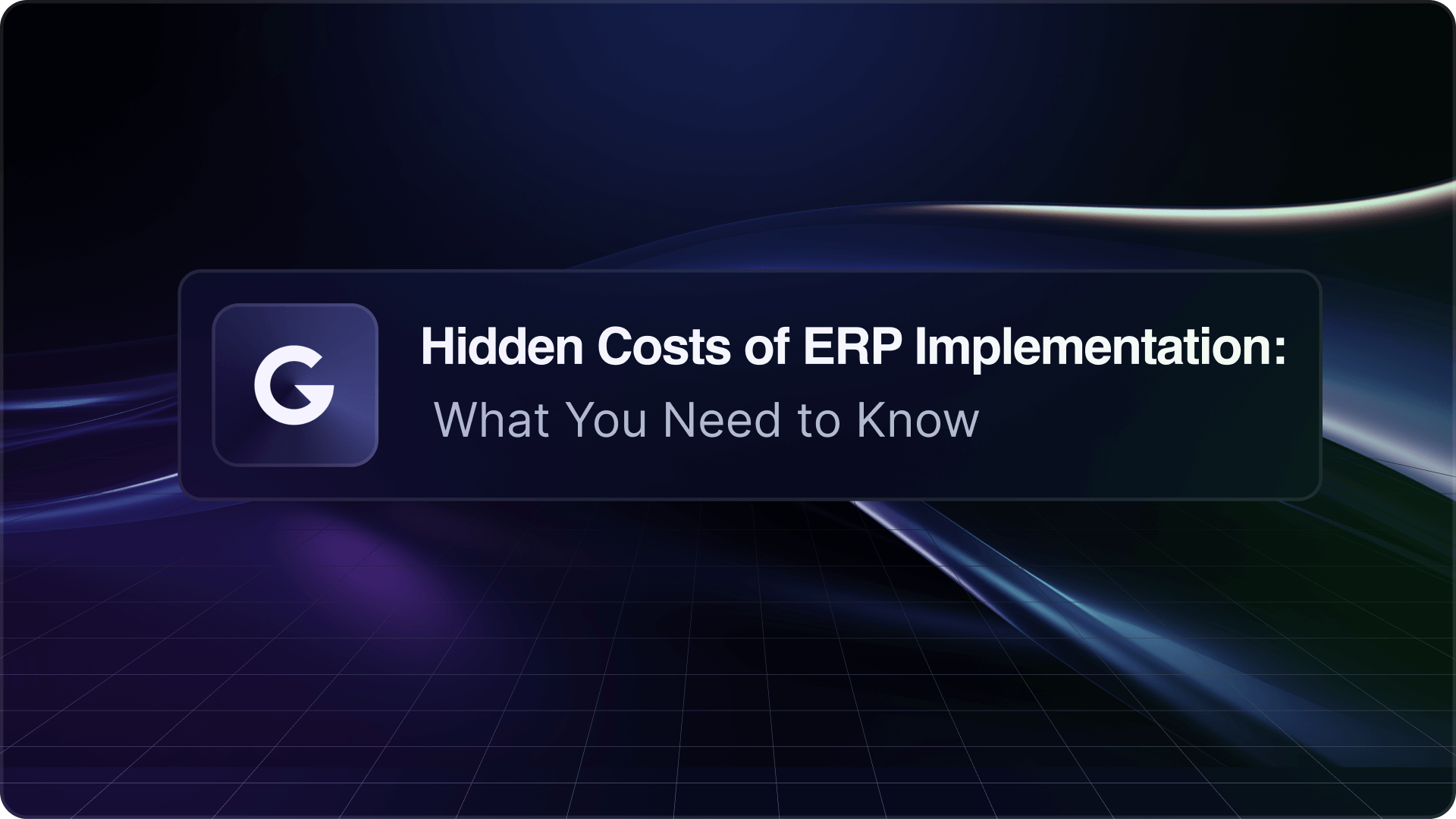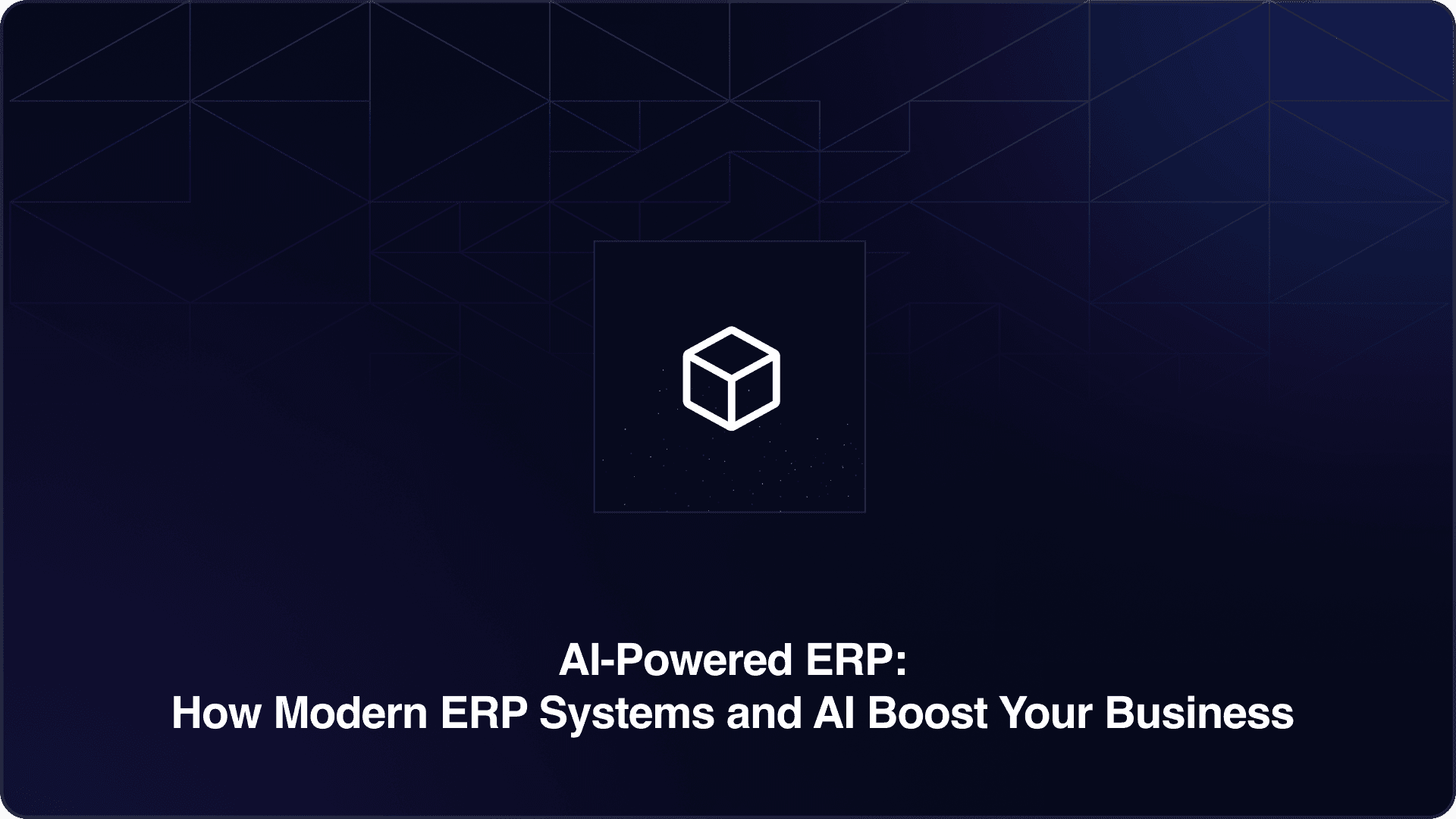In today's fast-paced business environment, staying competitive requires more than just hard work and dedication. Efficient and streamlined operations, precise data management, and strategic decision-making are essential. This is where Enterprise Resource Planning (ERP) systems come into play.
ERP is an integrated software solution that centralizes and automates core business processes, including finance, HR, supply chain, and customer management. By consolidating data into a single system, ERP streamlines operations, automates tasks, and enhances decision-making with real-time information. This unified approach saves time, reduces costs, and provides insights for informed decisions. ERP systems also grow with the business, offering flexibility to add new functionalities as needed, supporting expansion and competitive advantage.
Ready to see how ERP can transform your business? Let us dive deeper and discover the potential of a unified system that drives efficiency and fuels growth.
How ERP Systems Empower Small Businesses for Growth and Efficiency
Many companies believe that implementing an ERP system is expensive, particularly for smaller businesses that may not need all the features of a comprehensive ERP solution. However, many ERPs offer customizable features tailored to the specific needs of a company without incurring high costs. Many ERP systems operate on a subscription basis, allowing companies to pay only for the features they require. This approach ensures that businesses can benefit from ERP capabilities without facing excessive expenses, making ERP systems accessible and cost-effective for companies of all sizes.
Key Benefits of ERP Systems
Implementing an ERP system offers numerous benefits that can significantly enhance the efficiency and growth of any size of business. These tangible benefits can be seen as follows:
Streamlining Operations
ERP systems integrate various business functions into a single, cohesive platform, thus reducing inefficiencies and improving productivity. This consolidation ensures that data flows seamlessly across departments, enhancing communication and collaboration, and enabling employees to work more effectively.
Automating routine tasks
By harnessing AI, businesses can automate day-to-day tasks such as data entry, invoice processing, and inventory tracking, frees up valuable time and resources, allowing employees to focus on strategic initiatives and higher-value activities while minimizing errors and ensuring consistency in operations.
Real-time data access
The real-time insights provided by ERP systems plays a crucial role in decision-making, helping business leaders make informed decisions quickly, and responding to market changes and internal needs with agility. This enhanced decision-making capability allows businesses to stay ahead of the competition, identify new opportunities, and mitigate risks more effectively.
Improve financial performance
Additionally, ERP systems offer robust financial management tools that help businesses improve their financial performance. By providing a comprehensive view of financial data, ERPs enable accurate budgeting, forecasting, and financial reporting. Businesses can track expenses, manage cash flow, and ensure compliance with financial regulations, leading to better financial health and stability.
Improve Inventory management
Effective inventory management is another critical benefit of ERP systems. With real-time tracking and inventory visibility, businesses can maintain optimal stock levels, reduce excess inventory, and avoid stockouts. This leads to cost savings, improved cash flow, and enhanced customer satisfaction as orders are fulfilled accurately and on time.
Boost customer management
Moreover, ERP systems boost customer management by providing a 360-degree view of customer interactions. By consolidating customer data, sales history, and communication records, ERPs help businesses offer personalized service and build stronger relationships. This improved customer management results in higher customer satisfaction, loyalty, and ultimately, increased sales and revenue
Collectively, these benefits drive growth, efficiency, and long-term success for small businesses. By leveraging the capabilities of ERP systems, small businesses can achieve significant improvements in various aspects of their operations, positioning themselves for sustained growth and competitiveness in an ever-evolving market.
Choosing the Right ERP: Key Considerations for Small Business Success
Choosing the right ERP system is a pivotal decision for small businesses aiming to streamline operations and drive growth. The right ERP can transform how a business operates, but the wrong choice can lead to inefficiencies and increased costs. As small businesses navigate this critical decision, several factors must be carefully considered to ensure the ERP system aligns with their specific needs and supports long-term success. Some areas for business owners to consider:
- Cost effective & Ease of use
Small businesses should avoid large ERP systems with complex, user-unfriendly interfaces, as these can lead to confusion and inefficiency. Additionally, selecting an ERP that is not customizable to the specific size and needs of the business can result in unnecessary costs for features that are not required. Therefore, it is essential for small businesses to choose an ERP solution that is both user-friendly and tailored to their unique requirements, ensuring a smoother implementation and better overall value.
2. Implementation and Training
Implementation and training process is just as important as selecting the right ERP system, as it can significantly affect the overall success and usability of the solution. Small businesses should be cautious of lengthy and overly complex implementation processes that can disrupt daily operations and lead to prolonged downtime. It is vital to choose an ERP vendor that offers a clear, step-by-step implementation plan tailored to the business's specific needs and timeline.
Additionally, comprehensive training programs are essential to ensure that all users are comfortable and proficient with the new system. Investing in thorough training can prevent confusion, reduce resistance to change, and ensure that employees can fully leverage the ERP's capabilities from the start.
Consequently, small businesses should prioritize ERP solutions that come with robust support and training resources, facilitating a smoother transition and maximizing the system's effectiveness from day one.
3. Scalable ERP
For small businesses, selecting a scalable ERP system should not be neglected, as it benefits long-term growth and efficiency. A scalable ERP system can adapt to the evolving needs of a business, accommodating increased complexity and expanded operations as the company grows. This flexibility ensures that the ERP can handle larger volumes of data, more users, and additional functionalities without requiring a complete overhaul. With a scalable ERP, small businesses can start with the essential features they need and gradually integrate more advanced capabilities as their operations expand.
4. Self-assess the readiness of your business
Before embarking on an ERP implementation, it's clearly crucial to assess whether your business is truly prepared for such a significant investment. Here is a quick checklist that business leaders can refer to determine:
- Have you found a product/market fit that ensures your offerings align with market demands?
- Is your company standardized in its processes for producing products or delivering services?
- Are your financial resources robust enough to absorb the risk if the ERP project doesn’t succeed, ensuring continued growth?
- Have you established a well-defined quality and process system that supports efficient operations?
- Do you have the right project team in place, with the expertise and commitment needed for a successful ERP rollout?
- Finally, have you identified clear metrics to measure the success of the ERP implementation?
If the answer to these questions is “yes” then you are ready to take your business to the next level.
Recommendation of different ERP and why it is good
Some popular ERP systems for small companies include:
- QuickBooks Online: Known for its ease of use and affordability while providing essential ERP functionalities such as accounting, invoicing, and financial management.
- Zoho ERP: offers a comprehensive range of business applications, including CRM, inventory management, and finance, with customizable options and robust integration capabilities.
- Odoo: Odoo stands out with its modular approach, allowing businesses to start with essential modules and add others as needed, making it highly adaptable.
- NetSuite: a suitable cloud-based ERP offering comprehensive features for financial management, CRM, e-commerce, and more, making it scalable and ideal for growing small businesses.
- Microsoft Dynamics 365 Business Central: This cloud-based ERP system provides integrated solutions for finance, sales, and operations, with strong customization and integration capabilities, ensuring a seamless fit for diverse business needs.
Another ERP system worth considering is Gravis AI, an excellent choice for small companies due to its tailored, affordable solutions designed to meet the unique needs of each service-based business. By leveraging advanced AI technologies, Gravis AI helps small businesses enhance efficiency, reduce costs, and gain a competitive edge without the need for extensive resources.
Our personalized approach ensures that even the smallest firms can harness the power of AI to streamline operations, improve customer engagement, and drive growth. With a focus on accessibility and affordability, Gravis AI empowers small companies to innovate and thrive in today's fast-paced market.
How Advanced ERP Systems Drive Real World Successes
Shutterfly
Shutterfly is an example of a small company improving their business processes and seeing significant growth from the implementation of advanced ERP and data management solutions.By integrating a real-time analytics platform with their existing Oracle ERP system, Shutterfly achieved remarkable efficiency gains. This integration allowed for the reduction of stockouts by 91% and saved over 11,000 employee hours annually by automating and streamlining inventory management processes. Overall, the ERP system positioned Shutterfly for sustained growth and a competitive edge in the market.
Fin X
Fin X, a forward-thinking company, has experienced remarkable growth and operational improvements by leveraging Gravis AI's cutting-edge ERP system. The integration of advanced AI analytics has empowered Fin X to uncover emerging market trends and make informed, strategic decisions that drive their business forward. Beyond market insights, Gravis AI provides Fin X with real-time data analysis and predictive modeling, allowing them to anticipate customer needs and optimize their offerings. Over the course of just one year, the company achieved an impressive 80% growth without incurring additional costs, thanks to the efficiency and precision of Gravis AI's solutions.
Loom Decor
Loom Decor, a small custom home furnishing company, significantly improved its operations and growth by implementing a cloud-based ERP system. Before the ERP, they struggled with manual processes, poor inventory management, and limited data visibility. After implementation, the company saw enhanced efficiency, better inventory control, and improved decision making, which led to increased customer satisfaction and revenue. The ERP system also allowed Loom Decor to scale seamlessly as they expanded, positioning them to compete more effectively in the market.
How AI, IoT, and Sustainability Are Shaping the Next Generation of ERP Systems
The future of ERP systems is poised to be transformative with the integration of advanced technologies. AI integration is set to revolutionize ERP solutions by providing advanced data analytics, predictive insights, and automation capabilities. These AI-driven features will enhance decision-making, streamline operations, and offer strategic advantages by automating routine tasks and predicting future trends.
Along with this, the integration of ERP systems with other cutting-edge technologies such as the Internet of Things (IoT), blockchain, and big data analytics will create a more interconnected and efficient business environment. IoT will provide real-time data from connected devices, blockchain will enhance transaction transparency and security, and big data analytics will offer deeper business insights, all contributing to a comprehensive and robust ERP ecosystem.
Another significant trend is the emphasis on mobile access and sustainability within ERP systems. As the workforce becomes increasingly mobile, ERP solutions are being designed with mobile-first approaches to ensure that users can access critical business functions anytime, anywhere. This mobility enhances productivity and allows for flexible work arrangements, ensuring that decision-makers have real-time access to essential information.
Furthermore, future ERP systems will support sustainability and green initiatives by including features that help monitor and reduce environmental impact, track energy consumption, manage waste, and comply with environmental regulations. These enhancements not only boost corporate responsibility but also appeal to environmentally conscious consumers, aligning business operations with global sustainability goals.
Conclusion
In conclusion, ERP systems offer numerous benefits for small businesses, including streamlined operations, automated routine tasks, enhanced decision-making capabilities, improved financial performance, better inventory management, and superior customer management. When selecting an ERP system, small businesses should prioritize scalability and customization to ensure the solution can grow with their business and be tailored to their specific needs. Choosing an ERP system that is user-friendly and fits within the budget without unnecessary features is crucial for maximizing efficiency and minimizing costs.
While the initial implementation of an ERP system might seem costly, the long-term benefits far outweigh these short-term expenses. Over time, a well-chosen ERP system can lead to significant cost savings through increased operational efficiency, reduced errors, and improved resource management.
Additionally, the ability to make informed decisions based on real-time data can drive sustained business growth and competitive advantage. Investing in a scalable and customizable ERP system ensures that as the business expands, the ERP can adapt and continue to support the company's evolving needs, making it a wise long-term investment for any small business.
